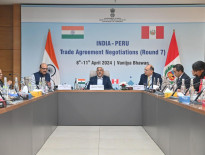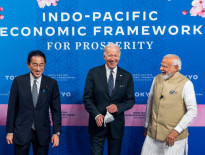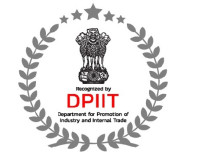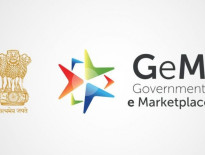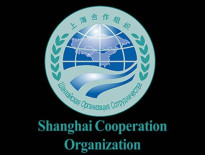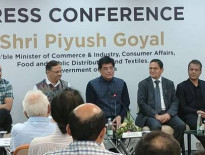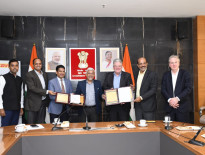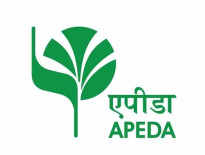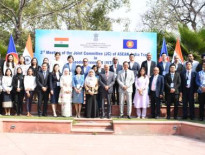Share
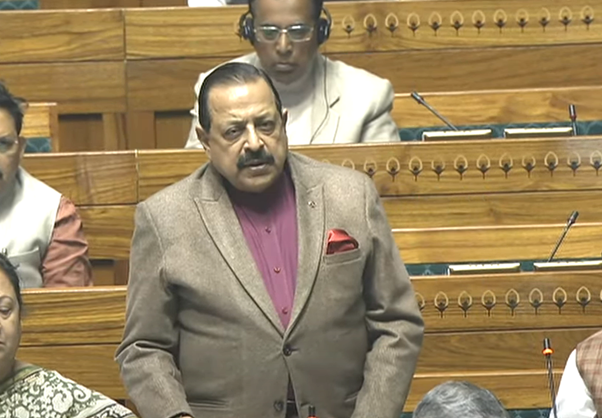
Women now constitute 43% enrolment in STEMM (Science, Technology, Engineering, Mathematics & Medicine) streams at Higher Education level: Dr Jitendra Singh
No gender bias in promotions, clarifies Dr Jitendra Singh, the overall representation of Women in S&T jobs will soon improve
“In the coming years, this trend will eventually reflect in higher Women representation in S&T Institutions, Industry and Startups”: Dr Jitendra Singh
Women are leading prestigious science projects like Aditya L1 mission, Chandrayaan3 etc, the Union Minister of State (Independent Charge) Science & Technology; MoS PMO, Personnel, Public Grievances, Pensions, Atomic Energy and Space, Dr Jitendra Singh said today.
Replying to a Starred Question in the Lok Sabha, the Minister said, women have started assuming leadership roles in Science projects. Cutting edge Space Research programmes like the Chandrayaan-3 and Aditya-L1 solar mission have women scientists in leading positions including Project Director.
Dr Jitendra Singh further informed the House that women now constitute 43% enrolment in STEMM (Science, Technology, Engineering, Mathematics & Medicine) streams at Higher Education level, who are in next few years expected to take up professional scientific roles.
In the coming years, this trend will eventually reflect in higher Women representation in S&T Institutions, Industry and Startups, said Dr Jitendra Singh.
Dr Jitendra Singh said, the common realisation is that in the Science fraternity the Women have already evolved from the participatory role to the leadership role.
Reassuring the House that there is no gender bias in promotions, he said, the overall representation of Women in S&T jobs will soon improve.
“The number of Women scientists is still lower compared to the Males, to be precise it is 18.6%, the R&D projects run by Women are up to 25%, but the Higher Education enrolment has increased tremendously over the last few years, it has gone up to 43%, which means, tomorrow when these girls take over those positions, these proportionate number of working scientists will also go up further,” he said.
Dr Jitendra Singh said, the WISE scheme was started during the tenure of Prime Minister Atal Bihari Vajpayee, it lay neglected during the interim and was extended as WISE – KIRAN (Knowledge Involvement in Research Advancement through Nurturing) Scheme by PM Modi when he assumed office in 2014.
“This government has already been giving highest priority to enhancing the role of Women in every sector. Prime Minister Modi has been reiterating this very often whenever he has a platform to speak,” he said.
Dr Jitendra Singh said, the budget for WISE scheme has jumped thrice since 2014-15. In 2014, it had an outlay of Rs.44 crore, which has now ballooned to nearly Rs.135 crore, he said.
As many as 2,153 women scientists have benefitted under the WISE-KIRAN Scheme in the last five years and the current year.
Women in Science and Engineering-KIRAN (WISE-KIRAN) scheme of the Department of Science and Technology (DST) is fulfilling its unique objectives of providing opportunities to women scientists and technologists including those who had a career break. The scheme promotes girls, women researchers and women institutions in the field of Science & Technology (S&T) through different programmes.
One of the flagship programmes ‘Women Scientist Scheme (WOS)’ under the WISE-KIRAN Scheme provides different opportunities to unemployed women scientists and technologists, especially those who had break in their careers, to pursue research in frontier areas of Science and Engineering. There are three major components of WOS, namely, i) Women Scientists Scheme-A (WOS-A) that supports women for conducting research in Basic & Applied Sciences, ii) Women Scientists Scheme-B (WOS-B) encourages them to carry out research that entails S&T interventions for societal benefit and iii) Women Scientists Scheme-C (WOS-C) enables them to become Intellectual Property Rights (IPR) professionals after one year of training.
Different programmes under the WISE-KIRAN scheme have pan-India spread and do not differentiate between rural and urban beneficiaries. However, another unique programme ‘Vigyan Jyoti’ that aims to encourage meritorious girls to pursue higher education and careers in STEM (Science Technology Engineering Mathematics) caters to girls from rural set-ups.
The Department of Science and Technology started some new programmes under the WISE-KIRAN Scheme during 2023-24. A new programme ‘WISE Fellowship for Ph.D. (WISE-PhD)’ is started to support women researchers to pursue Ph.D. in Basic and Applied Sciences. On the other hand, the WISE Post-Doctoral Fellowship (WISE-PDF) programme promotes women scientists to carry out Post-Doctoral research in Sciences & Engineering. Another programme ‘WISE-SCOPE’ allows women scientists to address societal challenges through S&T interventions in 5 thematic areas of societal relevance. Further, the WIDUSHI Programme extends support to senior women scientists to harness their potential for the betterment of science and society. In addition, the WISE Internship in Intellectual Property Rights (WISE-IPR) programme provides training to young women in the field of Intellectual Property Rights. These new programmes under the WISE-KIRAN Scheme aim to bring gender parity across the STEM fields.
Source : https://pib.gov.in/PressReleasePage.aspx?PRID=2003613
Related Posts
SEARCH SMECONNECT-DESK
RECENT POST
- SME MANUFACTURERS and EXPORTERS MEET – THANE
- SME MANUFACTURERS and EXPORTERS MEET – KOLHAPUR
- Council of Scientific &Industrial Research(CSIR)-Indian Institute of Petroleum (IIP)celebrated its 65th Foundation Day
- CBDT signs record number of 125 Advance Pricing Agreements (APAs) in FY 2023-24
- 7th round of the India-Peru Trade Agreement Negotiations concludes in New Delhi


